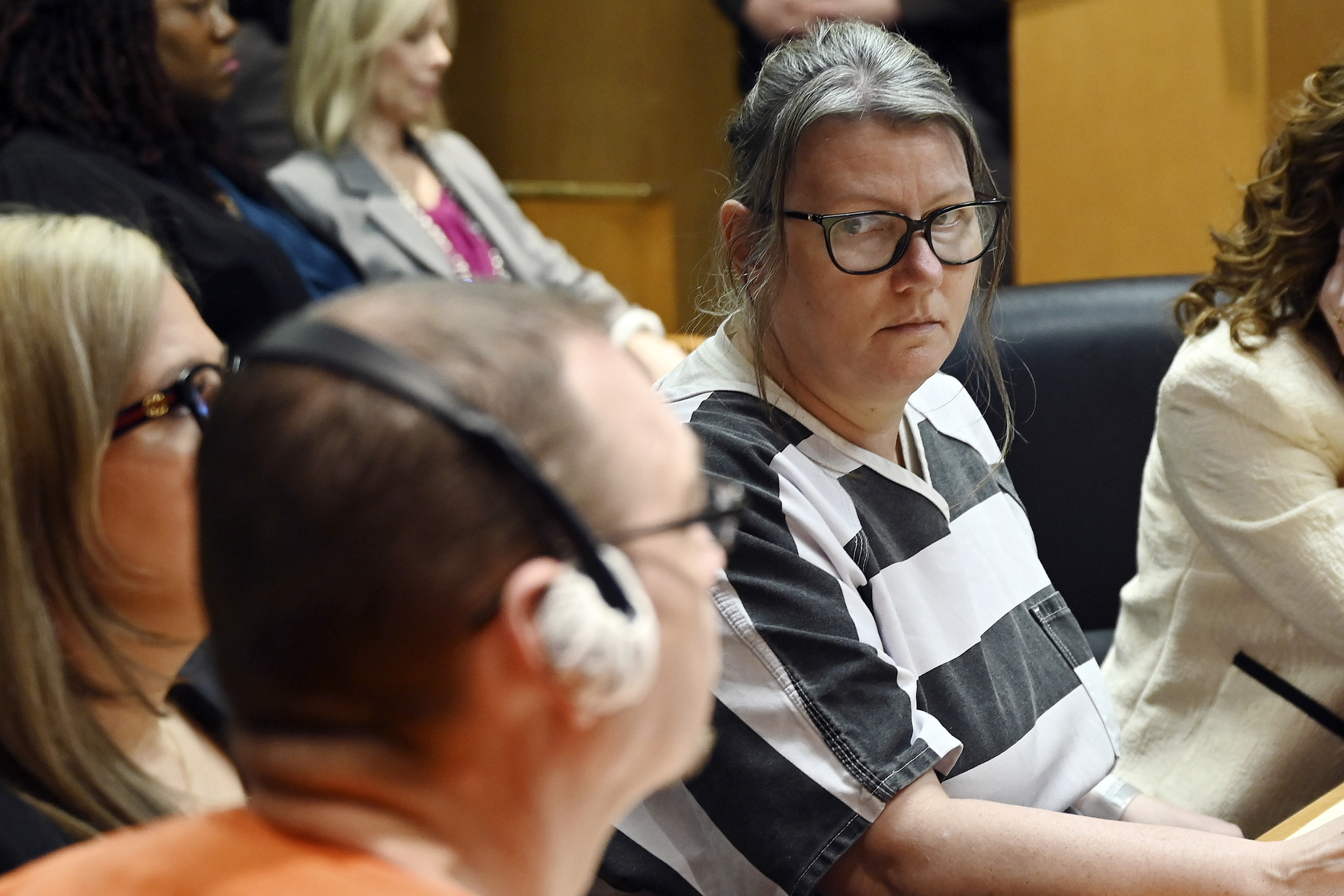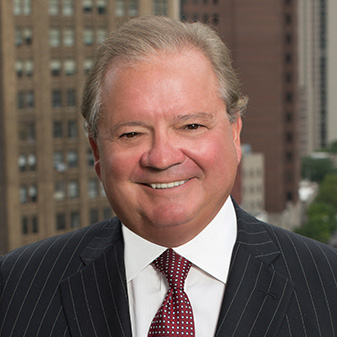Chemerinsky: It’s likely to be an amazing year in the Supreme Court

Erwin Chemerinsky. Photo by Jim Block.
No U.S. Supreme Court term in recent memory has had more potential blockbuster cases on the docket than this one. The court is likely to dominate the headlines in May, and especially June 2020, with rulings on almost every major controversial area of law.
Also, between now and then, Chief Justice John G. Roberts Jr. will preside over the third Senate impeachment trial in American history. And the November 2020 election will determine who will fill the next vacancies on the high court. But focusing just on the docket, these are likely to be the major decisions in spring 2020.
Abortion rights
In June Medical Services LLC v. Gee, the high court will consider the constitutionality of a Louisiana law that requires a doctor performing an abortion to have admitting privileges at a hospital within 30 miles. This requirement is identical to that in a Texas law that the court struck down in Whole Woman’s Health v. Hellerstedt (2016). That decision, though, was 5-3, with Justice Anthony Kennedy joining Justices Ruth Bader Ginsburg, Stephen G. Breyer, Sonia Sotomayor and Elena Kagan to create the majority. Now with Justices Neil M. Gorsuch and Brett M. Kavanaugh, it is widely thought that there are five votes to allow much more government regulation of abortion and, perhaps, even to overrule Roe v. Wade.
In the companion case, Gee v. June Medical Services LLC, the court will consider whether abortion providers have third-party standing to challenge health and safety regulations on behalf of their patients. In Singleton v. Wulff (1976), the court allowed such standing based on the close identity of interests between abortion providers and patients. If the court overrules Singleton and restricts standing, it will be much harder to challenge laws restricting access to abortion.
The state of DACA
President Barack Obama issued an executive order, Deferred Action for Childhood Arrivals, which accorded deferred deportation status to more than 700,000 individuals. Often called “Dreamers,” these are individuals who were brought to the United States before the age of 16 and are either enrolled in school or have graduated, or are in the military or have been honorably discharged. To qualify, an individual cannot have a conviction for a felony or a serious misdemeanor. DACA means that these individuals could not be deported for a two-year period and that they can receive work permits.
President Donald Trump rescinded DACA. In Department of Homeland Security v. Regents of the University of California, Batalla Vidal v. Nielsen and Trump v. NAACP, the lower courts held that Trump failed to articulate a legitimate reason for this action, and thus violated the federal Administrative Procedures Act. If the court overrules the lower courts and upholds Trump’s actions, these individuals will lose their work permits and face deportation.
Free Exercise of Religion
Montana created a program to give tax credits to parents who send their children to private schools, both secular and religious. The Montana Supreme Court invalidated this program and concluded that it violated the Montana Constitution, which prohibits direct and indirect aid to religion.
In Espinoza v. Montana Department of Revenue, the Supreme Court granted certiorari on the question of whether it violates the religion clauses or the equal protection clause of the United States Constitution to invalidate a generally available and religiously neutral student-aid program because the program affords students the choice of attending religious schools.
In 2017, in Trinity Lutheran Church of Columbia v. Comer, the court concluded that it violated free exercise of religion for a state to deny aid to parochial schools for surfacing playgrounds that it provided to secular private schools. But the court stressed that its ruling was narrow and just about aid for playgrounds.
What makes Espinoza different is that the Montana Supreme Court invalidated the entire program as violating the Montana Constitution. A crucial underlying question is if no program exists, can it violate the First Amendment?
Gay, lesbian and transgender rights
In Altitude Express v. Zarda and Bostock v. Clayton County Georgia, the court will decide whether discrimination based on sexual orientation in employment violates Title VII of the 1964 Civil Rights Act. Both cases involve men who were fired for being gay. In R.G. and G.R. Funeral Homes v. Equal Employment Opportunity Commission, the issue is whether Title VII is violated by firing a person based on gender identity for being transgender. Aimee Stephens was fired by Harris Funeral Homes, a place where she had worked for six years as a funeral director, when she informed her employer that she was transitioning from male to female.
The majority opinion in every Supreme Court decision in history expanding rights for gays and lesbians was written by Justice Anthony Kennedy. Will there be a majority for gay, lesbian and transgender rights without him?
Presidential power
On Dec. 13, the court granted review in three cases where lower courts upheld subpoenas concerning Trump’s financial records. Trump is asserting a broad immunity from investigation and legal process.
The issue in Trump v. Vance is a state court grand jury subpoena for eight years of Trump’s business and personal records in connection with an investigation of hush money that was paid during the 2016 campaign to Stormy Daniels and Karen McDougal. Trump sued in federal court to keep his accounting firm, Mazars USA, from turning over the financial records. The federal district court ruled against him and the United States Court of Appeals for the Second Circuit affirmed.
A second case, Trump v. Mazars USA, involves a subpoena by the House Oversight and Reform Committee, which is investigating the hush money payments, Trump’s financial involvement with Russian companies and the accuracy of financial statements he made to obtain loans and reduce taxes. The federal district court ruled against Trump and the United States Court of Appeals for the District of Columbia Circuit affirmed. The appellate court concluded that the “subpoena issued by the committee to Mazars is valid and enforceable.”
The final case, Trump v. Deutsche Bank AG, involves subpoenas from the House Financial Services and Intelligence Committees that were directed at two financial institutions that did business with Trump, Deutsche Bank and Capital One. Once more, Trump went to court to block the subpoenas, but lost in both the district court and the Second Circuit.
These are enormously important cases in terms of checks and balances under the United States Constitution and whether a president is effectively above the law.
Second Amendment
In New York State Rifle and Pistol Association v. City of New York, the court is considering the constitutionality of New York City’s ban on transporting a licensed, locked and unloaded handgun to a home or shooting range outside city. The case would be the first decision since District of Columbia v. Heller (2008) to clarify the scope of the rights protected by the Second Amendment and could answer unresolved issues regarding the right to have guns outside the home and the standard that should be used in evaluating regulations of firearms.
However, New York City repealed this law, and New York State adopted a statute preventing such laws in the future. The court has been urged to dismiss the case as moot and most of the oral argument on Dec. 2 focused on the mootness issue.
Separation of powers
In Seila Law LLC v. Consumer Financial Protection Board, the court will decide the constitutionality of the Consumer Financial Protection Board. Specifically, the question is whether it violates separation of powers to have an independent agency led by a single director whose removal is limited by statute. If the court finds this unconstitutional, it then must decide whether the entire Dodd-Frank Act should be invalidated.
Many have speculated that the conservative majority on the Roberts court wants to impose greater judicial limits on the administrative state. It has not happened yet, but this could be an important decision in that direction.
In conclusion
These, of course, are only some of the major cases on the docket. The court also likely will be adding several more in January to be decided by the end of June 2020. It truly is likely to be an amazing year in the Supreme Court.
Erwin Chemerinsky is dean of the University of California at Berkeley School of Law. He is an expert in constitutional law, federal practice, civil rights and civil liberties, and appellate litigation. He’s the author of several books, including The Case Against the Supreme Court (Viking, 2014). His latest book, We the People: A Progressive Reading of the Constitution for the Twenty-First Century, was published in 2018.



